TOP BOY:
THIS IS A MAN’S MAN’S MAN’S WORLD
A Portrayal Of The Feminine Experience In A Patriarchal Society

“Mosadi o swara thipa ka bogaleng.”
(Translation: ‘a woman holds a knife on the sharp end’; a saying denoting the condition and ability of a woman to endure hardship and suffering without complaint.)
– Pedi proverb
For women, a world of rape, murder and general male aggression is a fact of life. A 2011 report recorded that 1000 women had been raped daily in the Republic of Congo, with 48 women being raped every hour. The statistics of other countries might not be as staggering, but they are just as damning, with South Africa facing the crisis of being unable to produce accurate data on the matter, because rape is “a silent” crime.
A silence that is irreconcilable with the “noise” of men. Patrick Ness presents this phenomenon of silence as a power that is a dangerous weapon against the male identity. Therefore, while women fear for their lives, men fear for the loss of their identity when it comes to ideals of feminism, a movement that advocates for the fair equality of both genders.

Little Simz cover art for her song Selfish
However, this is a man’s man’s man’s world and according to its residents, the aggression and violence of the masculine are an admired and glamorously noble characteristic expression of men, who are considered to be the pillars of their societies. In Netflix British series, Top Boy, the colour of the man is an important distinction in regard to how a man operates and how a man is regarded by society. The Irish, the Albanians, and the Turks are presented as fair-skinned, organised and sophisticated dealers that the roadmen get their drugs from. They are a sauve and highly refined juxtaposition to the boorish, uncouth individuals who kill one another in the backdrops of their financially inaccessible worlds. Albeit this is a relevant view, a patriarchal society is an established reality that all women, regardless of class, ethnicity or religion, find themselves in.
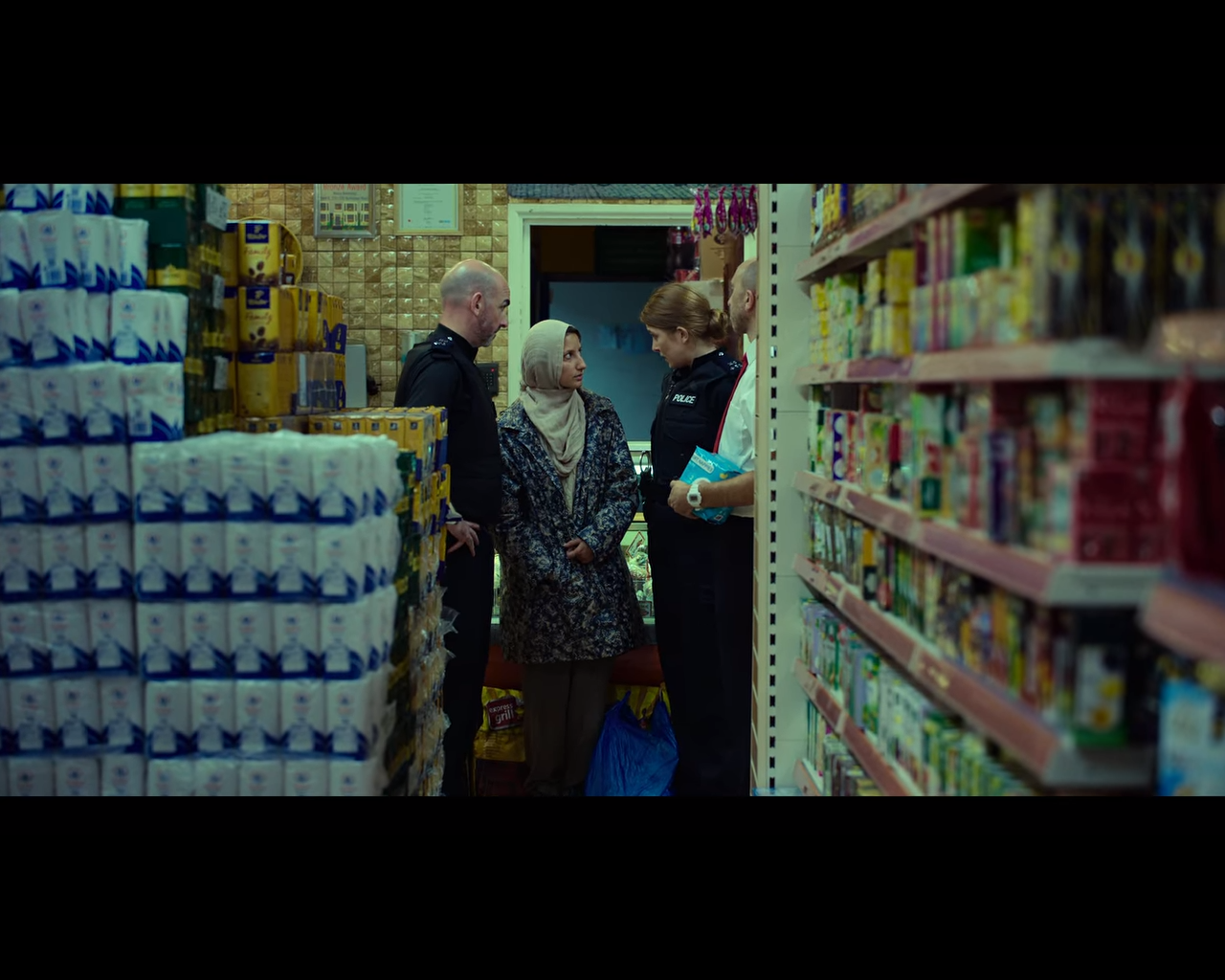
Faez’s wife caught shoplifting baby supplies
The term ‘drug dealer’, much like the word ‘rape’, conjures in the mind a man, and though there are female drug dealers, such as Jamie’s new dealer after he murdered the Turks, it is a profession that is dominated by men. A 2016 report found that in the United States of America, 84.9% of drug traffickers were male. In Top Boy, very, very few women were part of the gangs, but almost all of the women, even the ones who weren’t involved, were affected.
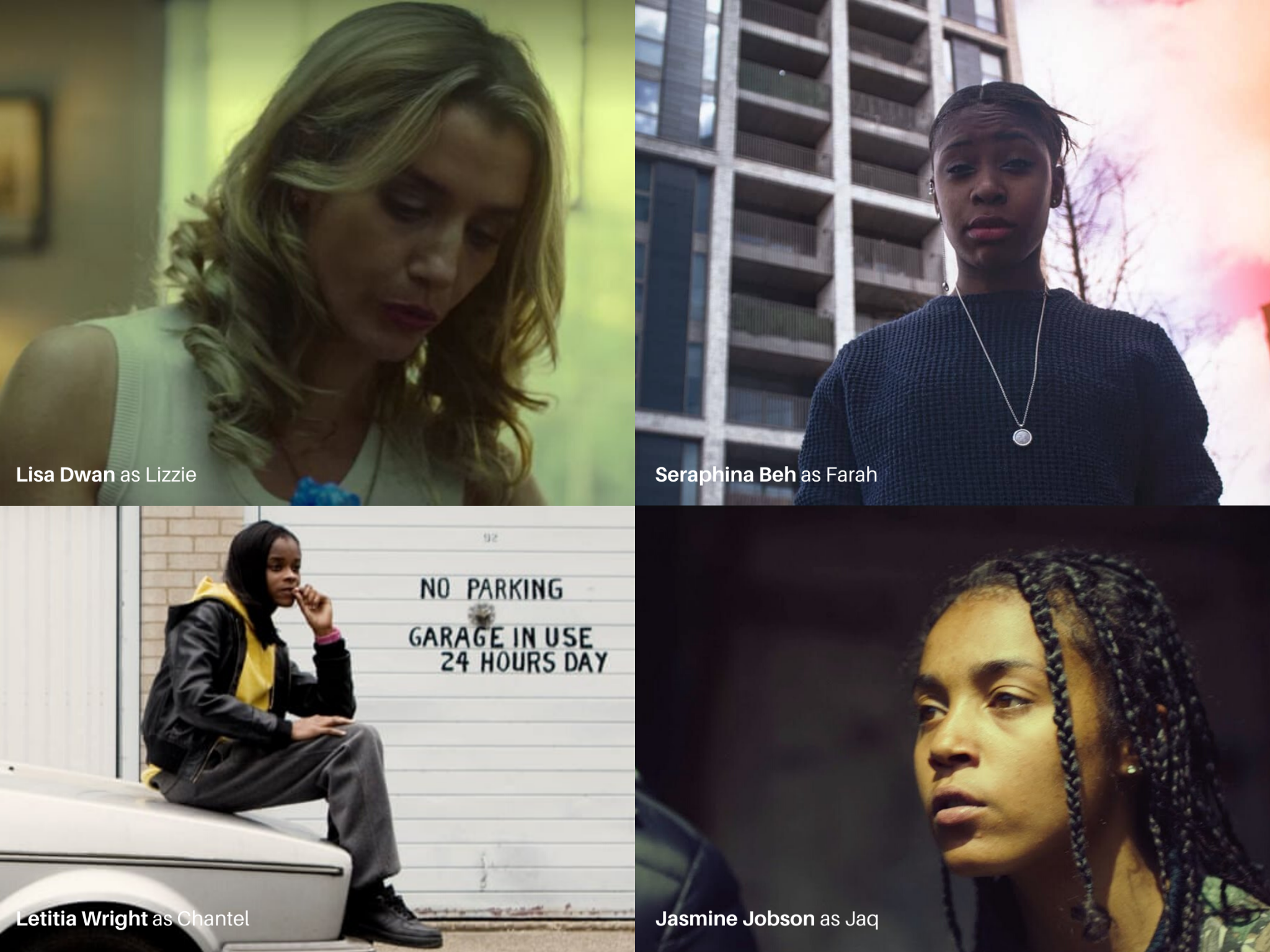
Female drug dealers on the show
In the first season we meet Ra’Nell’s mother, Lisa, who is suffering from severe depression, because of Ra’Nell’s father being a roadman and subsequently leaving her and their son. At some point she is placed in a mental health facility, and Ra’Nell has to take care of himself until she returns. Her mental state is one that many women suffer; whether from gender based violence in the forms of domestic abuse, or from mental and emotional abuse being counted alongside the physical – to qualify, you don’t need to be murdered in order to be heard.
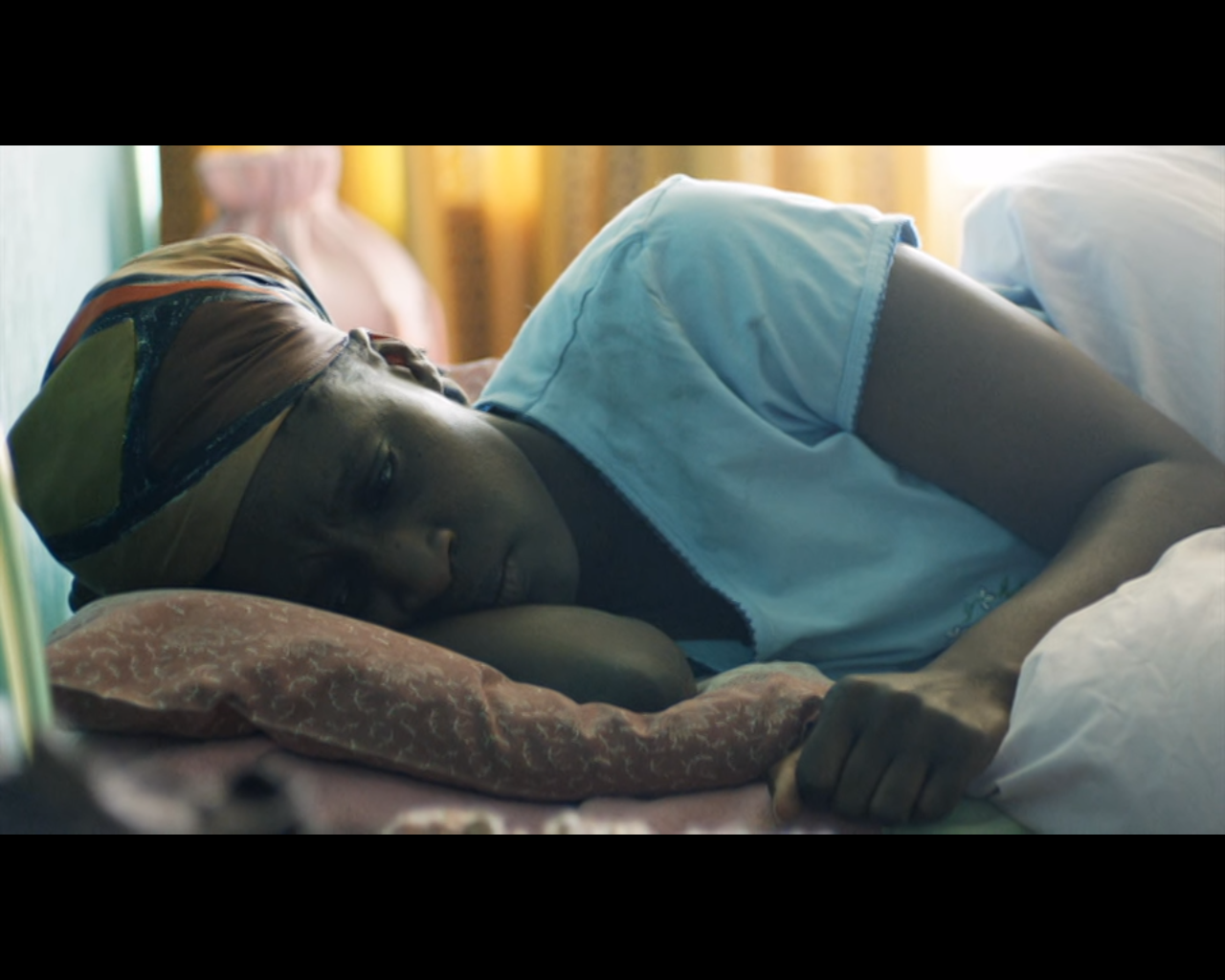
Ra’Nell’s mother in bed battling with depression
This narrative of men abandoning their children and partners is an attitude that holds true to the sentiment of women being the primary care givers of a couple’s offspring. In the famous case of Hugo v The President of the Republic of South Africa, the President had granted a Presidential pardon to imprisoned women who were the sole parents of their child or children. This meant that those women were free to go. The plaintiff, Hugo, contested that the pardon was unfair as it arbitrarily discriminated on the basis of sex and gender. In terms of the facts of the case, Hugo was a man serving a prison sentence, and was the sole parent of his child. It was clear that he, too wanted to qualify for the Presidential pardon in order to take care of his child, however the Constitutional Court found that the President’s decision to pardon only women was not unfair. Only one judge pointed out the problem with the President’s decision – that it was contrary to principles of gender equality. The Netflix series displays this tension between the male and the female parent through values of responsibility and availability, with the female parents often coming out as the ‘top boy’.

Marsha Millar who plays Dushane’s mother, Pat

Sharon Duncan-Brewster who plays Ra’Nell’s mother, Lisa
In the first instance, Sully, the wild, loose cannon that is Dushane’s right hand, starts off as a man who refuses to take responsibility for his own actions. He has a girlfriend and a daughter, who he visits on occasion, but it is clear that he does not live with them. As season 1 of Summerhouse melds into season 2, we see him become a protective guardian over a very young boy named Jason, who steals drugs for his neglectful addict of a mother. Moreover, Jason suffers extreme physical and emotional abuse from his mother’s boyfriend. Sully, in a somewhat hypocritical twist, yells at her to “take care of your kid”, an area of his life that he is not quite fulfilling.
In contrast, Dris is a single father to his daughter, Erin, with her mother serving time in prison. Dris is dedicated to Erin: walking her to school every morning and fetching her every afternoon, doting on her and spending time with her. When he gets arrested for suspicion of murder, Erin’s mother calls him in a panic, and it becomes apparent that there is no one else who will take care of their daughter if he also ends up in jail.
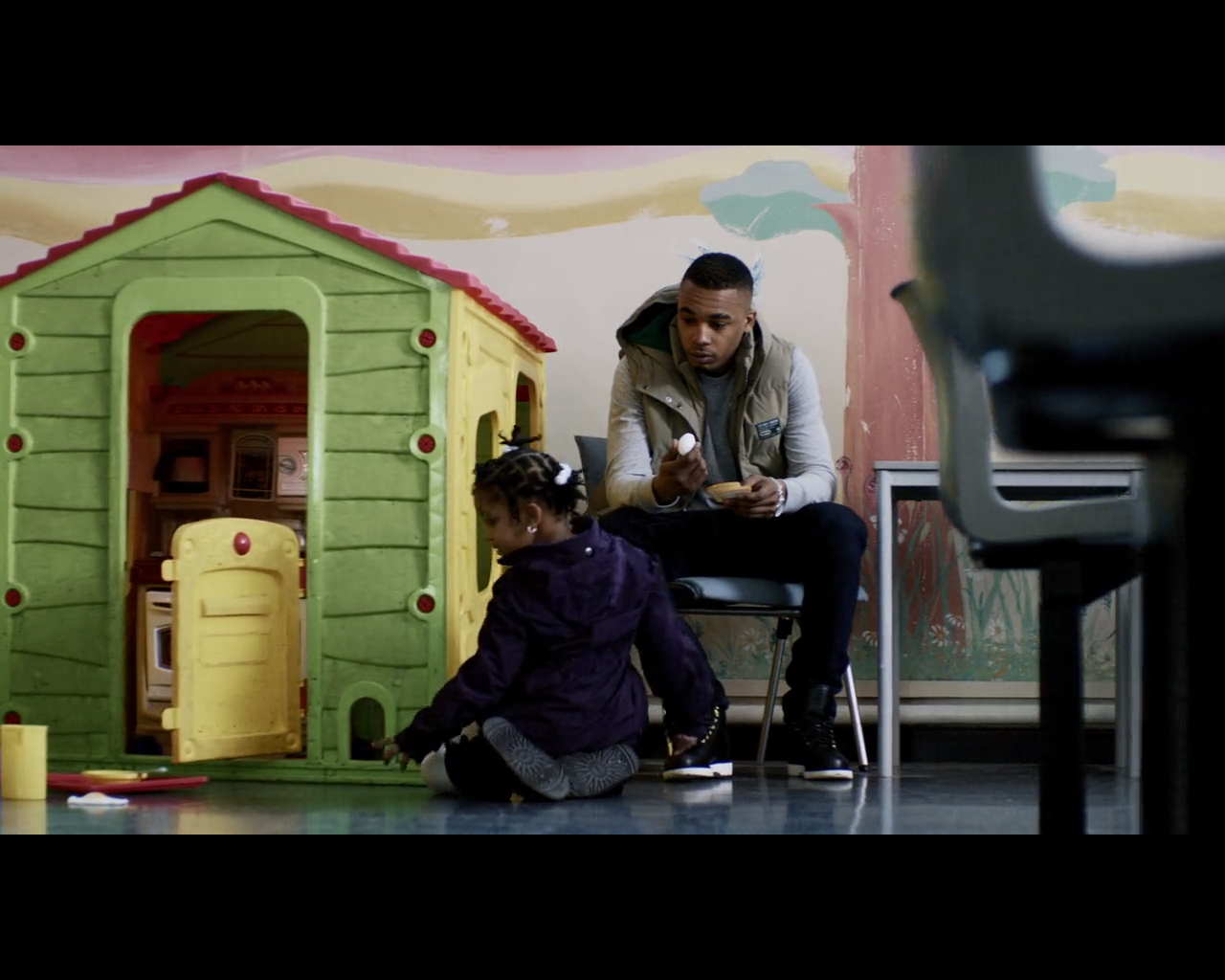
Dris and his daughter Erin visiting her mother in jail
Sadly, though Dris is a present father, his lifestyle means that he makes some decisions that put him and his daughter in dangerous situations. In season 3, listed as season 1 on Netflix, there is a scene where he invites Dushane and a couple of other men holding bags of loaded guns into his home. They are having a meeting about making a robbery, and apart from the factor of gun accidents in the home being a frequent cause of numerous deaths, it is something illegal. It is drugs. It means that his home where he lives with his daughter could get raided, and she could die. Even without the men there the lifestyle is a dangerous one, and the show delivers on a home invasion, depicting the burning of Chris’s chest while his wife screams in the background. Later, we see her hysterically attacking Sully and Dushane, yelling at them to leave her family alone and to no longer come near them. Dushane and Sully act surprised at what looks, to them, like womanish and overly-emotional behaviour, instead of a human being that has experienced a traumatic event.
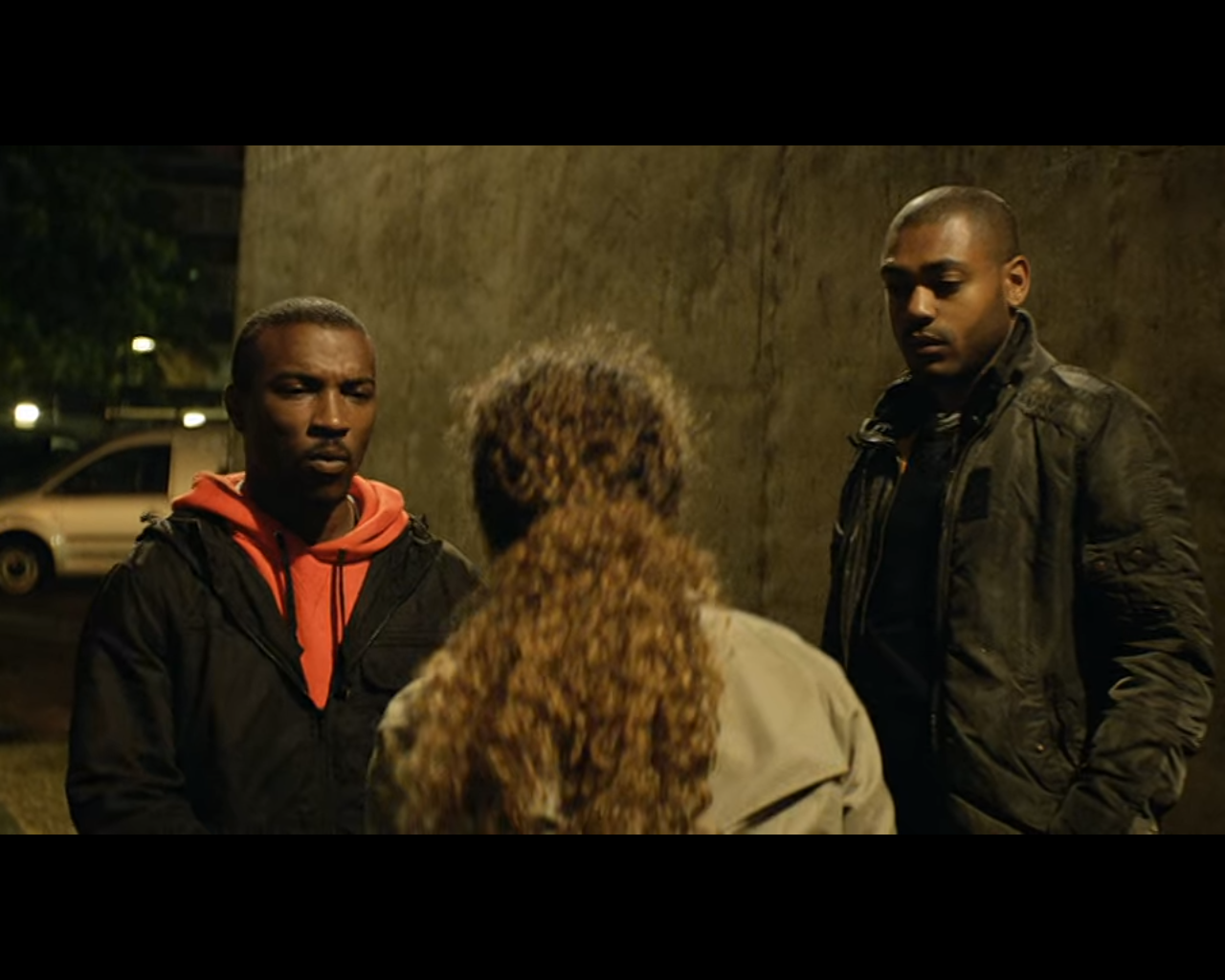
Chris’s wife confronting Dushane and Sully
It is this male gaze that is a prominent agent in a gendered and largely heteronormative society. When men date men, they are effiminate; when women date women, they are one of the guys, and though there are no effeminate or gay drug dealers in the show, there is Jaq. She teaches men boxing, is emotionally shy and defensive, but is quick to anger and violence – characteristics that are typically seen as male. It does not feel forced, however as the problem lies not in her character as an individual, but in the fact that character and personality are a gendered experience in the gendered brain. Her sister, Lauryn, on the other hand is the complete opposite. Lauryn is a very “feminine” woman, who does her nails, wears make-up and wants to meet a good man; the latter proving untrue, because Leighton, a member of Jaq’s rival gang, did not have sincere feelings for her. In a brutal scene where Lauryn is mourning the death of Leighton, she reveals that she gave him information that led to one of the members in Jaq’s gang almost getting killed. Jaq beats her up badly (after Lauryn had stated that Leighton would never hit her) and tells her to leave, because if she doesn’t she will get killed, a threat that Dushane echoes when Jaq later confides in him about her sister being a snake.

Jaq a female and lesbian drug dealer on Top Boy

Felicia “Snoop” Pearson a female and lesbian soldier on the HBO series The Wire
Whether or not Leighton would have laid hands on Lauryn will never be known, but it is clear that he did not think of the danger he was putting her in when he falsely cosied-up to her, and it’s an action that we see repeated by the men in Top Boy. Dushane goes to visit Shelley immediately after Haze threatens her life and Sully insists on hunching over the bathroom sink in his ex-girlfriend’s house, pulling bullets out of his arm. It is a lifestyle that they are prepared to suffer for, despite the trauma attached to it, as well as the vulnerability of the women in their lives, who aren’t as mentally and physically equipped to defend themselves. Think the tragic shooting of Jamie’s budding romance with Tilly, and the almost awe-inspired way that Lester was speaking in when he described how Sugar, his boss, cut out the heart of a child in front of its mother.
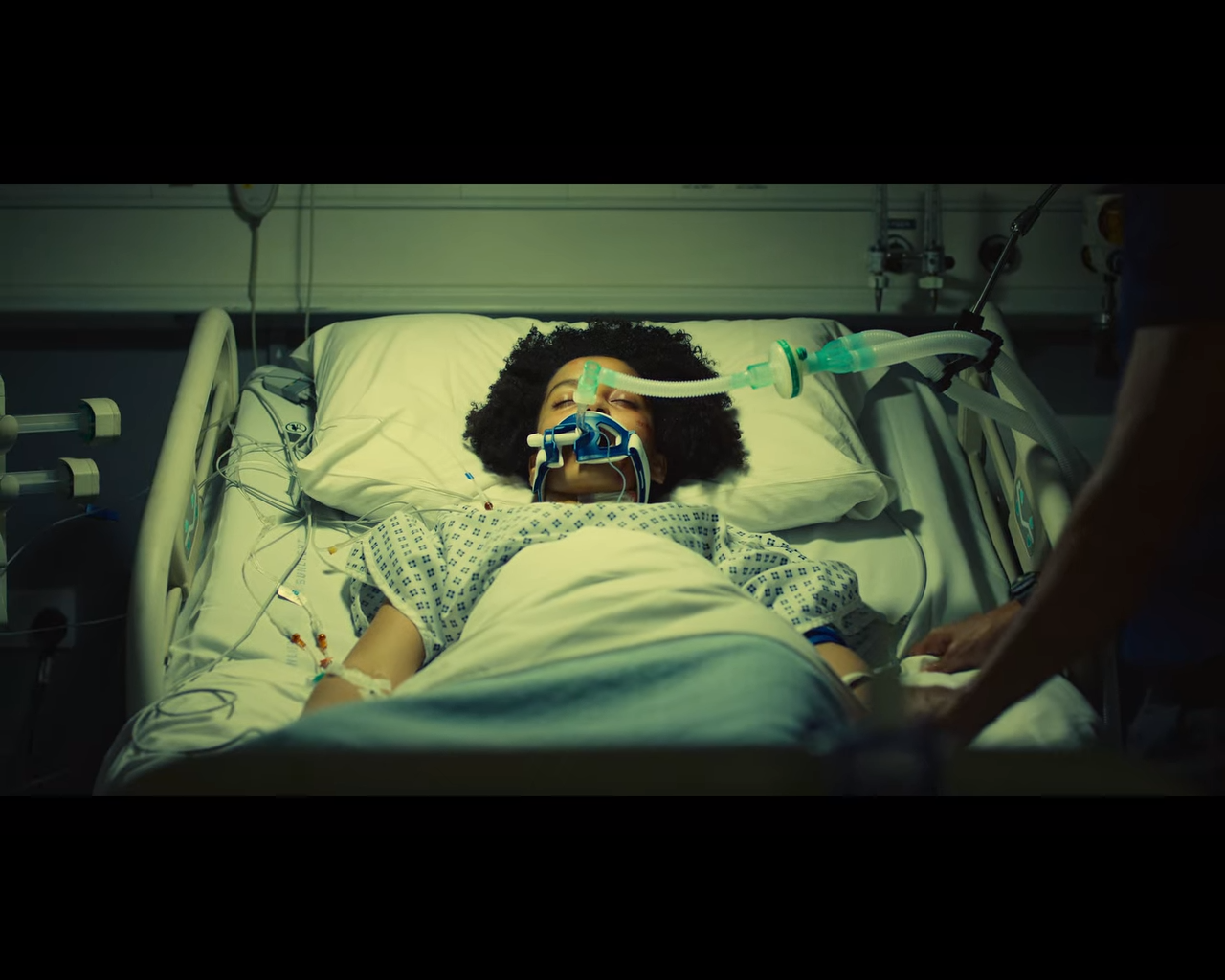
Tilly in hospital after being shot
Another element of the relationships we see between the roadmen and the women in their lives is manipulation. As previously stated, Leighton manipulated Lauryn into giving him information. Dushane also manipulates the pain of his cousin’s girlfriend in his favour. Before that, in Top Boy Summerhouse, Dushane’s attention is grabbed by his solicitor, an attractive and fierce woman, who eventually concedes to going out for a drink with him. They have sex, unsurprisingly, as Dushane was simultaneously impressed with and attracted to her. Ordinarily, if she were played by a man, Dushane would have been impressed by her without the kick-back of a hard-on, and her skill and well put-together image would not be reminiscent of pornographic content that depicts women in nurse, police officer, doctor and fire fighter uniforms, as well as in the positions of various other professions that were previously exclusively practised by men.
The constant sexualisation of women is problematic, because it is not only an act that is merely done by men. It carries with it the sentence that both defines and forces women into the position of existing to serve the interests of men (aka the book of Genesis). It is not something that viewers typically think too hard about when they see Sully entering a brothel in order to spy on the Albanians. The fact is that he is doing what he needs to do in order to get back the stolen drugs, rather than contributing to a social pandemic. His behaviour is not only normal, but also frequently admired. The whore who goes down on him is out of sight and silent for the rest of scene, highlighting the status of women’s experiences in instances of exploitation in terms of the sex trade and human trafficking – which is actually what we were witnessing.
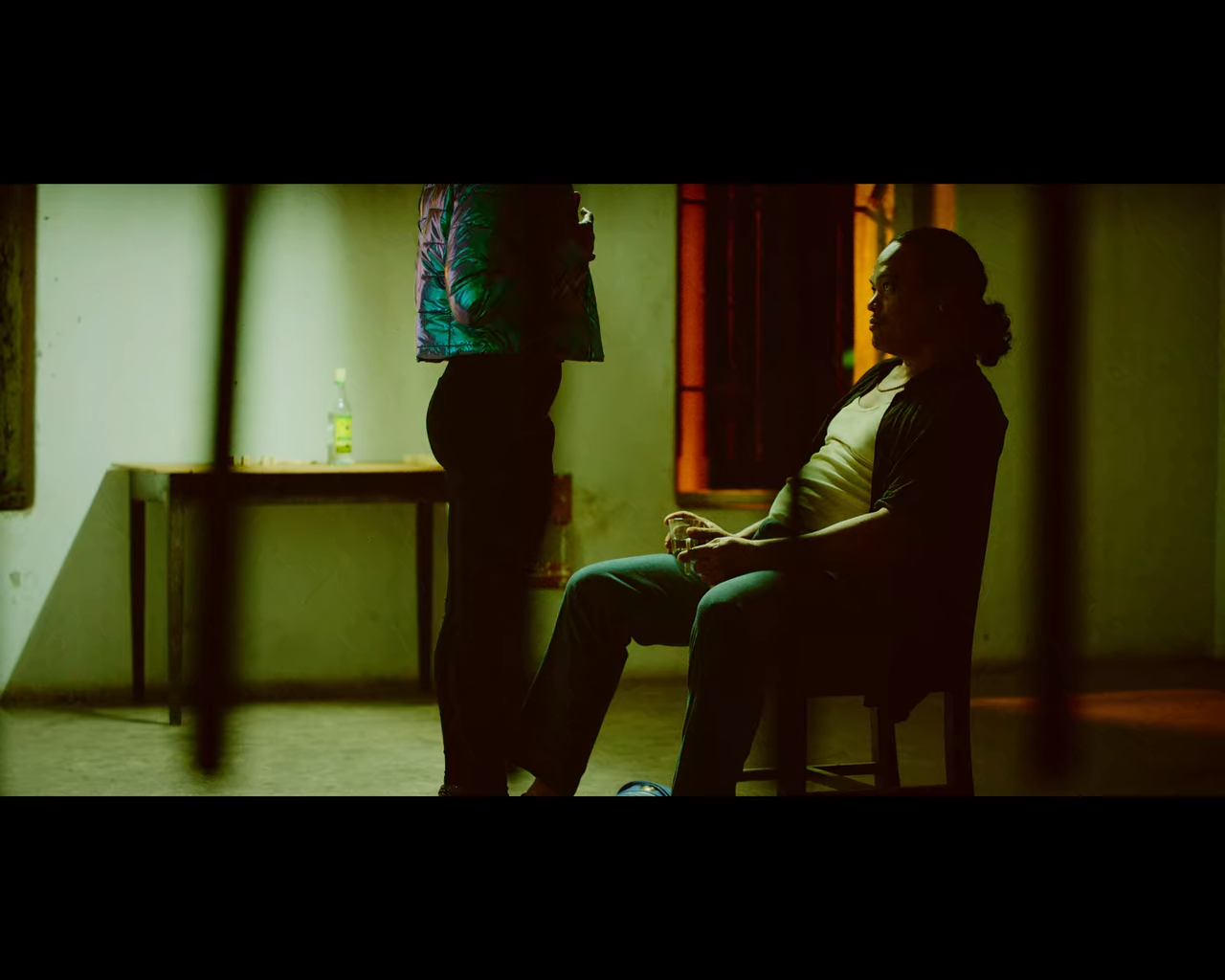
Dushane’s cousin seducing Sugar
In the end, Dushane destroys his own integrity in the eyes of his solicitor, and when his lifestyle claims the life of his cousin, Donovan, he is kicked out by his mother who laments that she always defended his non-existent good name and honour, in spite of the bad things that she’s heard about him. Sully, on the other hand, loses his ex-girlfriend’s permission to see his daughter when she comes to the realisation that he doesn’t seem to have the strength to give up his life of violence and crime. Her priority is their daughter – much like the other mothers of the series, who prioritise their children’s livelihoods and safety; and do we remember that time when Dushane blackmailed a young mother into protecting him by abducting her child?
It’s a move that Sully has increasing qualms about, and he tells Dushane that they shouldn’t target children. Moreover, Sully is becoming visibly disenchanted with being a roadman, hinting to Dushane at some point about working in an office, something that Dushane dismissively laughs about. To us viewers, however, Sully appears to be feeling a mixture of jealousy and regret, seeming to wish that he had been a reliable man for his ex and a present father for his daughter, who expresses the pain that his absence has probably caused her by refusing to acknowledge him as her father when they first meet after he gets out of prison.
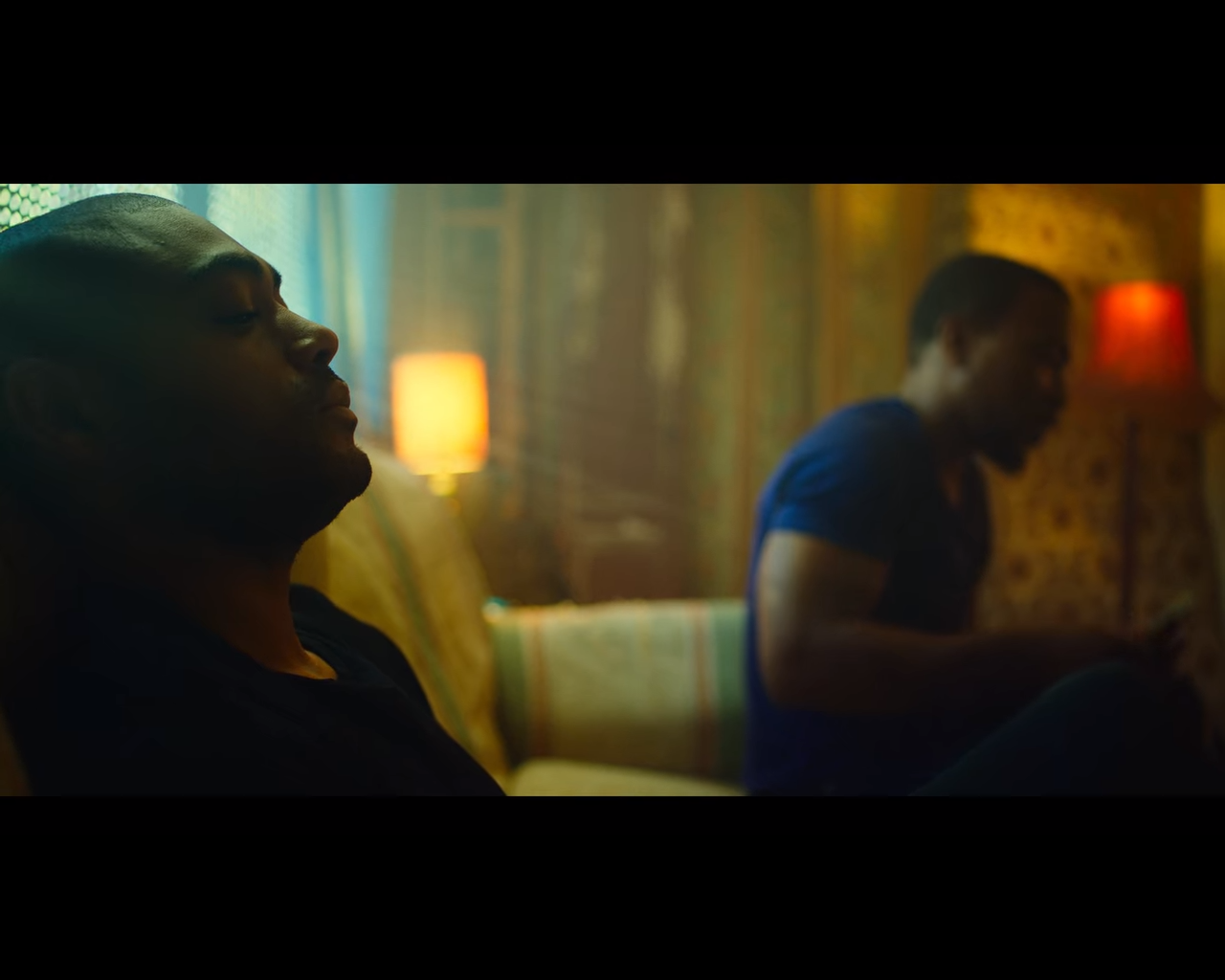
Sully conflicted about their lifestyle as roadmen
The narrators of Top Boy satisfyingly avoid typing every woman as weak-willed and physically defenseless, the latter being a common handicap that most women are hyper-aware of in their relations with men. When the overwhelming mass of Kit descends on Ats and his mother, who are baking a cake when he knocks, his gun does not paralyze her with fear. Ats’ mother fights him, yelling at her son to get down. She repeatedly grabs onto the shotgun, directing it away from her son and not giving up even when two shots go off, one of which we see punching a fist-sized hole into the wall. Kit finally steps back and regards her in bewildered frustration, and she looks at him in a way that makes you realise that she is prepared to do anything in her power to protect her son, even if it means killing.
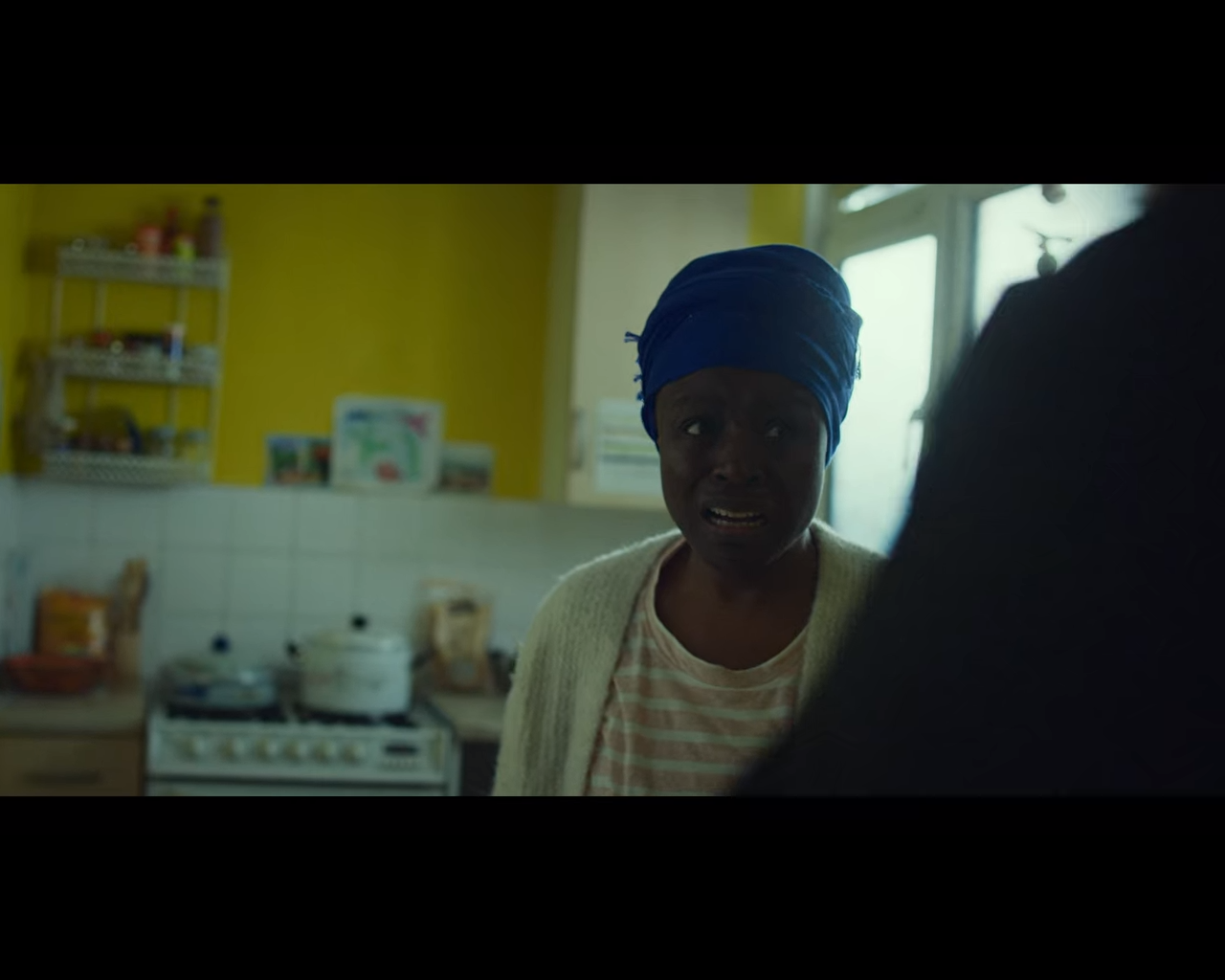
Ats’ mother, Amma defending her son
On the romantic side of the spectrum, Shelley, the first woman we see Dushane trying to impress, is not easily dazzled, refusing his haphazard bejeweled gift and asking him point-blank what his intentions are. He gets defensive and asks why does she have to be so difficult, which is a subtle method of gaslighting that men often use against women when they are having a hard time with “getting the girl”, because the woman is not cooperating like they are pressured and conditioned to believe.

Shelley and Dushane in coversation
In theory, academic contributions to the ‘querelle des femmes’ – the ‘woman question’ – have been laid to rest. It has long since been established that women, like men, are human beings and there have since been strides in the progression of the emancipation of women, amid their suffering and dying at the hands of men. In short, it has clearly not been enough to dispel the mythos of the Madonna in the eyes of men – and women who’ve internalised their own lack of human distinction, which is a status one automatically achieves by virtue of the fact of being human without having to reach the banal standard of proving to the world at large that they can do what men do. And if other people cannot let you be human, because the idea irks them, well –
“Here are two signatures of the German text – in my opinion, the crudest charlatanism; it discusses the question, ‘Is woman a human being?’ And of course, triumphantly proves that she is.”
– Razumihin to Raskolnikov, Crime and Punishment.

Crime and Punishment by Fyodor Dostoyevsky
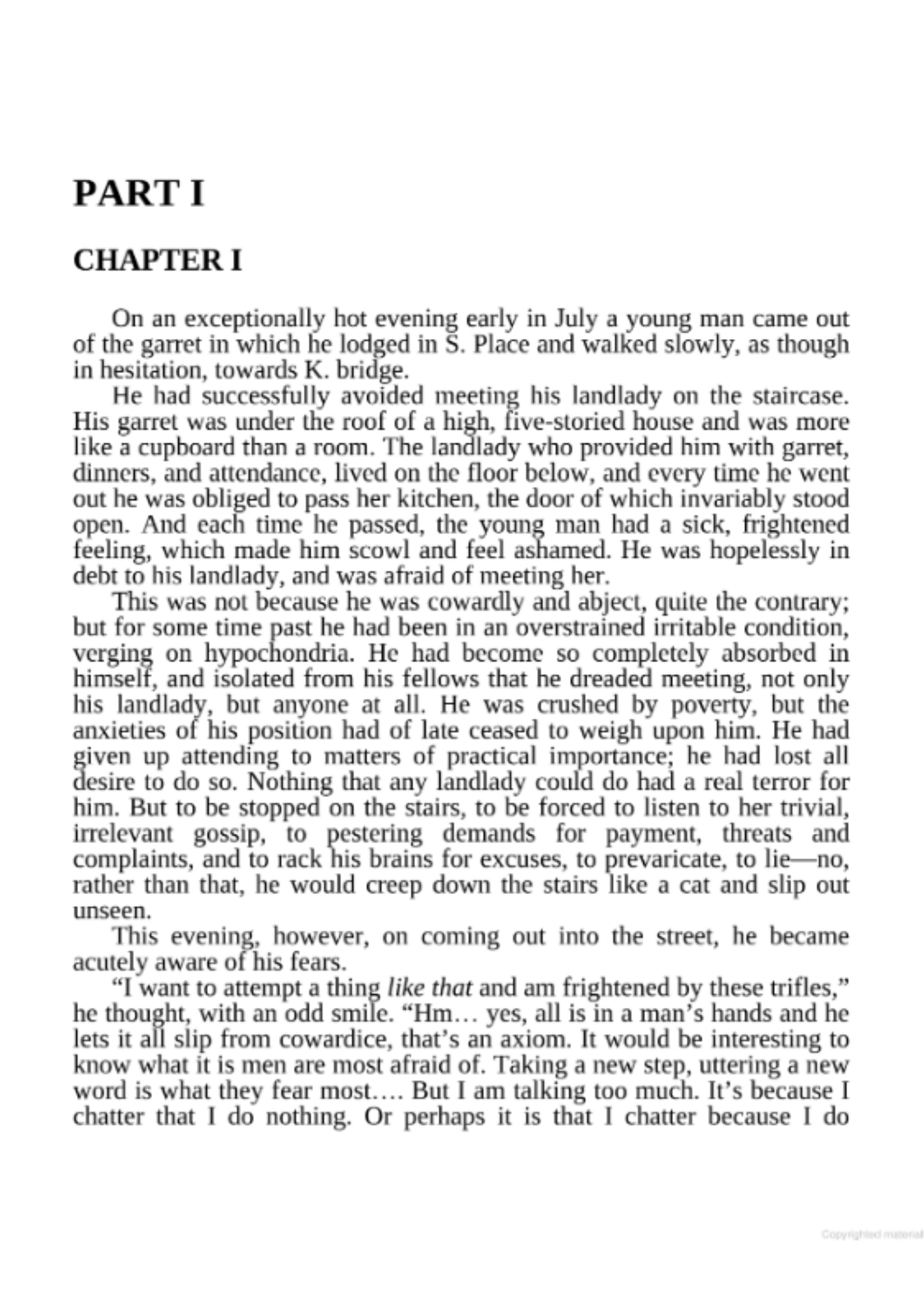
An excerpt from Crime and Punishment
Lerato Ramodike is a Pretoria based writer, she’s a novelist, short story writer and visual artist.


